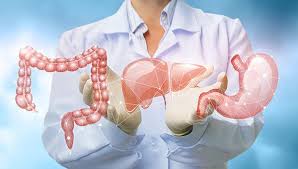Hepatology
Hepatology: Understanding Liver Health and When to See a Specialist
What is Hepatology?
Hepatology is a medical specialty that focuses on the diagnosis, treatment, and prevention of diseases related to the liver, gallbladder, biliary tree, and pancreas. The liver is a vital organ responsible for filtering toxins, producing essential proteins, and storing nutrients. When liver function is impaired, it can lead to serious health issues. Hepatologists are experts in managing conditions such as hepatitis, cirrhosis, fatty liver disease, and liver cancer.
Common Liver Diseases in Hepatology
1. Hepatitis
Hepatitis refers to inflammation of the liver, often caused by viral infections (Hepatitis A, B, C, D, and E), but can also be due to alcohol use, autoimmune diseases, or medications.
- Hepatitis B and C are the most concerning as they can lead to chronic liver damage, cirrhosis, and liver cancer.
- Treatment often includes antiviral medications to control the infection and prevent further liver damage.
- Hepatitis A and E are typically acute and resolve on their own but can be prevented with vaccines.
2. Non-Alcoholic Fatty Liver Disease (NAFLD)
NAFLD is the most common form of liver disease worldwide, closely associated with obesity, type 2 diabetes, and metabolic syndrome. Fat builds up in the liver without alcohol consumption, potentially leading to inflammation and scarring (non-alcoholic steatohepatitis, or NASH).
- Treatment focuses on weight loss, lifestyle changes, and controlling associated conditions like diabetes and high cholesterol.
3. Alcoholic Liver Disease (ALD)
Chronic alcohol consumption can lead to liver inflammation, fatty liver, cirrhosis, and liver failure. The severity depends on factors such as alcohol consumption patterns, genetics, and overall health.
- Abstinence from alcohol is the cornerstone of treatment.
- Medications and nutritional support are often used to manage symptoms and prevent progression to cirrhosis.
4. Cirrhosis
Cirrhosis is advanced scarring of the liver caused by chronic liver damage, often from hepatitis, alcohol abuse, or fatty liver disease.
- Cirrhosis can lead to complications such as portal hypertension, liver failure, and liver cancer.
- Management includes addressing the underlying cause (e.g., antiviral therapy for hepatitis or abstaining from alcohol) and managing complications. In severe cases, a liver transplant may be necessary.
5. Liver Cancer (Hepatocellular Carcinoma)
Liver cancer is often the result of chronic liver disease, especially cirrhosis. It is the sixth most common cancer worldwide and often diagnosed at a late stage.
- Early detection through imaging tests, such as ultrasounds, and blood tests (e.g., alpha-fetoprotein) is crucial.
- Treatment options include surgery, liver transplant, or targeted therapies depending on the stage.
How Hepatologists Diagnose Liver Disease
Hepatologists use a variety of diagnostic tools to assess liver function and identify liver disease:
1. Blood Tests
- Liver Function Tests (LFTs): Measure levels of liver enzymes (ALT, AST, ALP) and other proteins to assess liver damage.
- Viral Hepatitis Tests: Identify hepatitis viruses in the blood and determine the stage of infection.
- Serology Tests: Detect autoimmune liver diseases or metabolic liver conditions like Wilson’s disease.
2. Imaging Studies
- Ultrasound: A non-invasive test to detect liver damage, fatty liver, or liver tumors.
- CT or MRI Scans: More detailed imaging techniques to assess liver structure, function, and detect complications like liver cancer.
- Elastography (FibroScan): Measures liver stiffness, which is useful for evaluating the degree of liver fibrosis or cirrhosis.
3. Liver Biopsy
In certain cases, a liver biopsy may be required to determine the extent of liver damage or to diagnose conditions like NASH or autoimmune hepatitis. A small sample of liver tissue is taken and analyzed under a microscope.
Treatment Options in Hepatology
1. Medications
- Antiviral Drugs: For chronic hepatitis B or C infections to suppress the virus and prevent liver damage.
- Corticosteroids and Immunosuppressants: For autoimmune hepatitis, to reduce liver inflammation.
- Diuretics and Beta-Blockers: To manage complications of cirrhosis, such as ascites or portal hypertension.
2. Lifestyle Modifications
- Weight Loss: Essential for patients with NAFLD or NASH.
- Abstinence from Alcohol: Crucial for those with alcoholic liver disease or cirrhosis.
- Dietary Changes: Low-salt, high-fiber diets and avoiding excessive fats to support liver health.
3. Liver Transplant
In cases of end-stage liver disease, where the liver can no longer function properly, a liver transplant may be the only option. This involves replacing the damaged liver with a healthy one from a donor.
Preventing Liver Disease: Tips from Hepatologists
- Vaccination: Get vaccinated for Hepatitis A and Hepatitis B to prevent viral infections.
- Moderate Alcohol Consumption: Limit alcohol intake to reduce the risk of liver disease.
- Healthy Diet and Exercise: Maintaining a healthy weight and eating a balanced diet can reduce the risk of NAFLD.
- Regular Screening: If you’re at risk for liver disease (e.g., if you have a family history or are a heavy drinker), regular check-ups with a hepatologist are recommended.
When to See a Hepatologist?
It’s important to consult a hepatologist if you experience any of the following symptoms:
- Chronic Fatigue
- Unexplained Weight Loss
- Yellowing of the Skin or Eyes (Jaundice)
- Abdominal Pain or Swelling
- Dark Urine or Light-Colored Stools
- Itchy Skin
Early intervention can prevent further liver damage and improve long-term health outcomes.
Conclusion
Liver health is essential for overall well-being, and hepatology plays a crucial role in diagnosing, treating, and preventing liver diseases. If you’re experiencing symptoms of liver disease or are at risk, consulting a hepatologist can help you manage and improve your liver health.
Don’t wait until symptoms worsen—early detection and treatment can make a significant difference in liver health.
